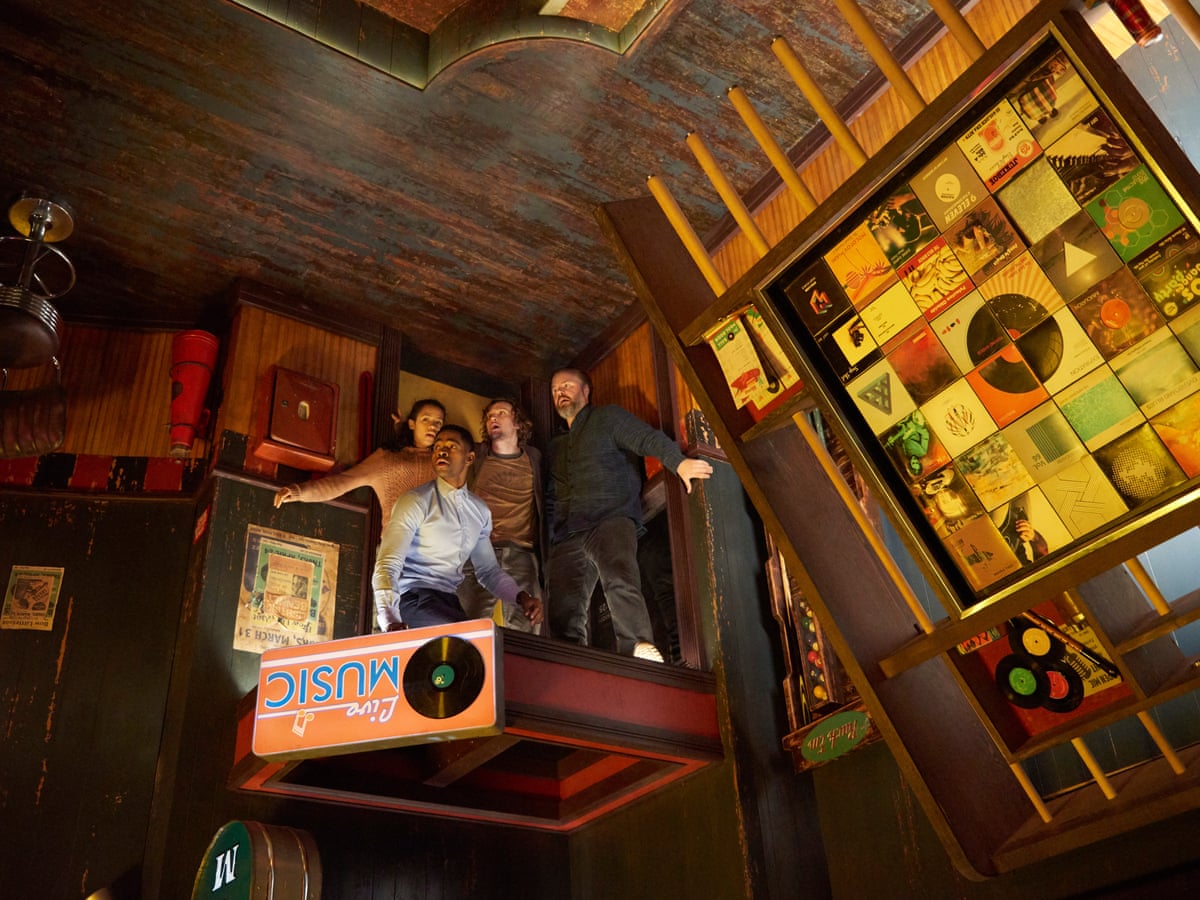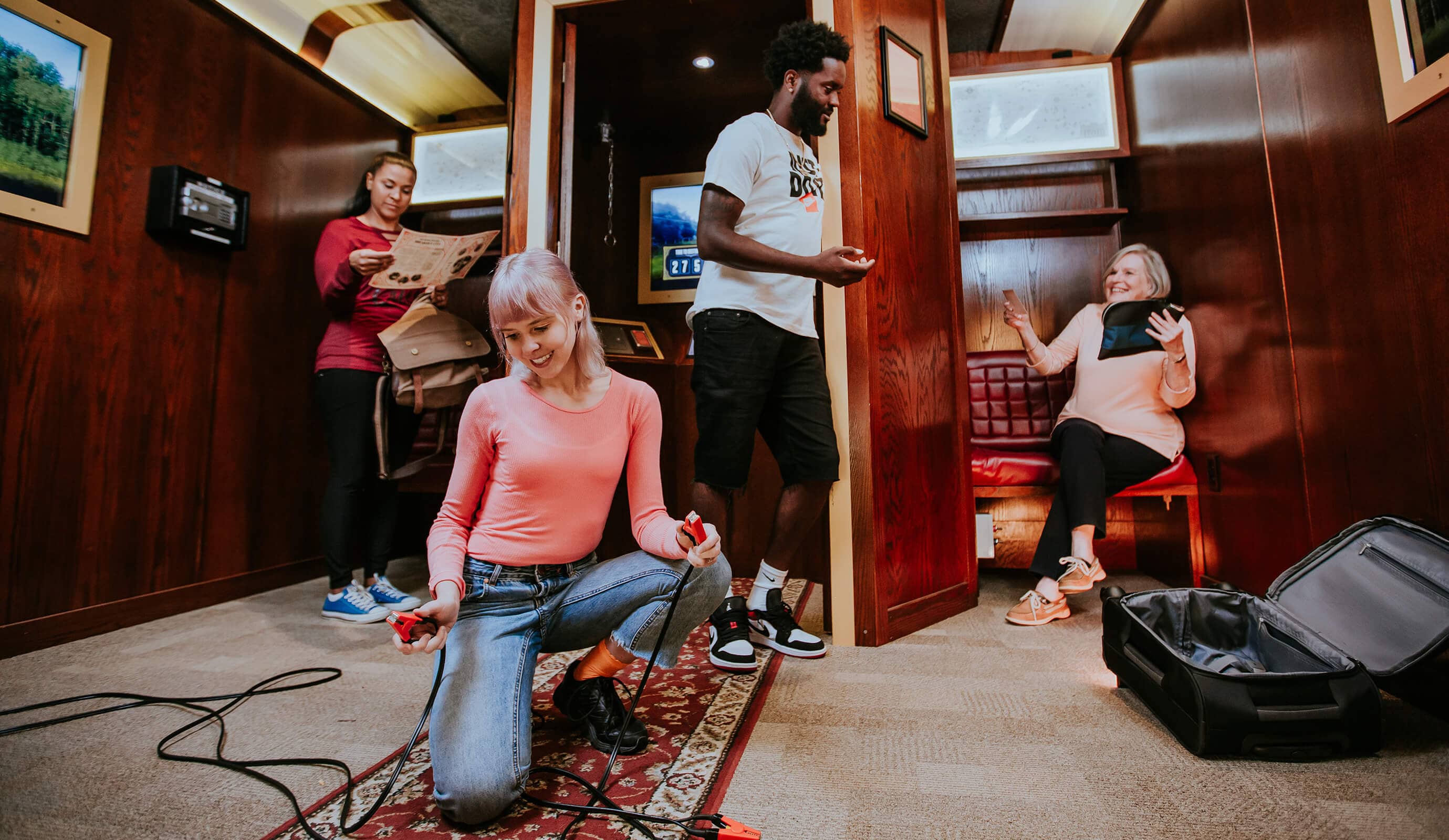Best Escape Room Experience-- Exciting Gamings and Puzzles for Groups
Best Escape Room Experience-- Exciting Gamings and Puzzles for Groups
Blog Article
Team Methods: Exactly How to Collaborate Successfully in a Getaway Room
Navigating the complexities of a retreat room requires greater than mere interest; it needs a well-coordinated method grounded in clear interaction, critical duty assignments, and skilled time administration. Teams have to actively pay attention to each participant's insights, appoint functions that straighten with private toughness, and keep regular check-ins to guarantee emphasis and prevent redundancy. By promoting an environment that values cohesion and flexibility, groups can considerably increase their efficiency and success prices. The nuances of these methods can transform the experience, yet exactly how specifically can they be executed to maximize the possibility for success?
Establish Clear Interaction
To assist in clear communication, it is crucial to assign a central factor of call for information circulation. Quick, focused updates from each group participant can keep the group notified without overwhelming them with details.

Designate Duties Tactically
While clear communication establishes the structure for reliable teamwork, appointing functions strategically guarantees that each team participant's strengths are utilized properly. In a getaway room scenario, the time-sensitive and intricate nature of difficulties demands a well-organized method to job delegation. By identifying and leveraging private proficiencies, groups can optimize their analytic abilities and improve total performance.
First, analyze the special skills and features of each participant. Someone with an eager eye for information may excel in discovering surprise items, while a rational thinker might be much better suited to resolving problems. It's just as essential to have a leader that can look after progress, handle the timeline, and make definitive telephone calls when necessary. This role frequently needs solid business and social skills.
Second, guarantee that functions are versatile and versatile. As new challenges emerge, the team has to have the ability to pivot, reapportioning jobs as called for. This flexibility aids maintain momentum and protects against bottlenecks that could occur due to inflexible role assignments.
Inevitably, a strategic strategy to role assignment not only makes the most of the strengths of each group participant however likewise promotes a cohesive environment, driving the group in the direction of an effective retreat.
Make Use Of Diverse Abilities
Recognizing and utilizing the diverse abilities within your group can considerably elevate your performance in an escape area. Each group member brings unique toughness to the table, and successfully leveraging these abilities can speed up analytic and improve overall effectiveness. A team member with solid logical skills might succeed at analyzing complicated codes or patterns, while an additional with keen observational abilities might quickly identify surprise hints that others might ignore.
Encourage group members to voice their insights and ideas quickly, making certain that all potential solutions are thought about. Additionally, assigning tasks that align with each participant's staminas can stop traffic jams and make sure that progression is continuous.
Furthermore, diversity in abilities typically equates to diversity in thinking styles, which is very useful in a retreat area setup. While some difficulties may require sensible thinking and precision, others might gain from imaginative and side reasoning. By identifying and leveraging this variety, teams can deal with a wider variety of difficulties a lot more properly, thereby enhancing their opportunities of an effective retreat.
Manage Time Efficiently

Recognize noticeable challenges and divide tasks based on team members' toughness, making certain that no one is idle. This technique can assist keep the team focused and prevent time from sliding away unnoticed.
In addition, avoid one-track mind. If a challenge is taking too long, revolve staff member or go on to an additional obstacle, returning later on with fresh viewpoints. Communication is critical-- keep everybody upgraded on fixed click here for info puzzles and staying tasks to websites stay clear of redundant initiatives.
Last but not least, make use of any type of tips or hints moderately yet tactically - best escape room. Knowing when to request help can conserve beneficial time. By adhering to these time monitoring principles, teams can substantially improve their possibilities of an effective and enjoyable retreat space experience
Debrief and Mirror
Reflection is a crucial facet of team advancement and renovation in the context of escape areas. Once the difficulty is finished, whether successfully or otherwise, it is important for the group to participate in a structured debriefing session. This procedure permits employee to assess their performance, determine staminas, and determine areas for improvement.
Begin the debrief by reviewing what worked out. Highlight specific instances of efficient interaction, problem-solving, and partnership. Identifying these favorable behaviors strengthens them and urges their rep in future challenges.
Next, get more deal with the challenges came across. Review minutes of complication, miscommunication, or ineffective techniques. Motivate an open and useful dialogue where employee can share their point of views without concern of objection. This promotes a society of constant enhancement and discovering.
Final Thought
In conclusion, effective collaboration in a retreat area is based upon clear communication, critical function tasks, the reliable usage of varied skills, and skilled time administration. By creating a cohesive and flexible team setting, the probability of efficiently addressing puzzles and achieving the objective of getting away the area is substantially boosted.
Report this page